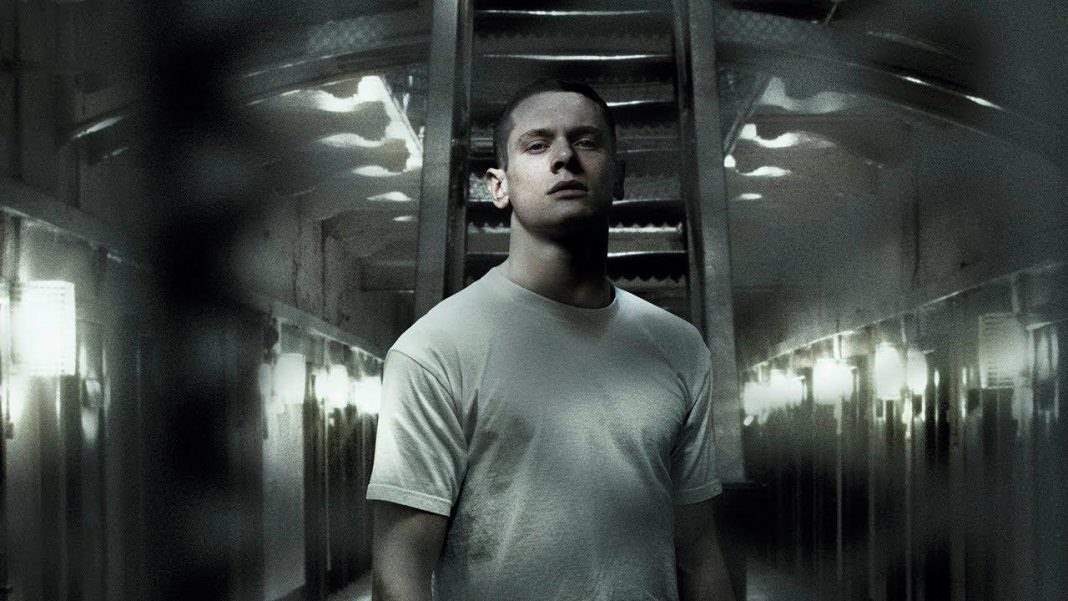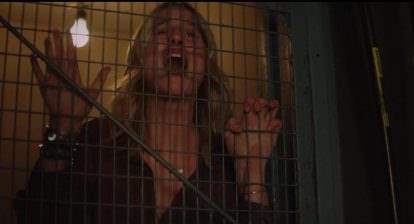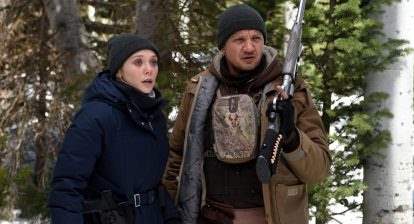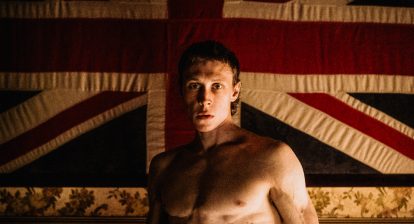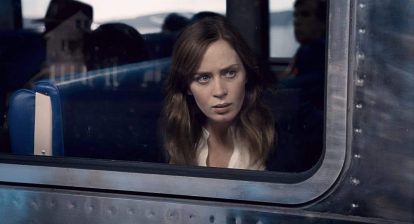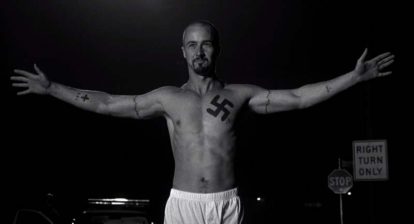Horror is evolving as a genre. Although your local multiplex is still peppered with the usual contenders, look a bit closer and you’ll find the latest drama, thriller, or crime offering is closer to horror than you might expect. In this bi-weekly series, Joey Keogh presents a film not generally classified as horror and argues why it exhibits the qualities of a great flight flick, and therefore deserves the attention of fans as an example of Not Quite Horror. This week, we take a look at Christopher Nolan’s groundbreaking comic book movie The Dark Knight.
The Dark Knight isn’t just, arguably, the greatest superhero/comic book film ever made, it’s also one of the darkest and, by extension, one of the scariest. Never before had a villain as terrifying as Heath Ledger’s Joker been committed to blockbuster celluloid and, thanks to the actor’s untimely passing, it’s unlikely we’ll see anything similar again (the jury’s still out on Jared Leto’s Suicide Squad Joker).
The core of the film’s scare appeal lies in Ledger’s unhinged portrayal, with each scene he steals imbued with a horribly grisly quality. Nolan’s Gotham is an order-less, crime-fueled city that is run by gangsters, watched over by an untrustworthy police unit and unofficially ruled by a masked vigilante. Most of the action seems to take place at night, even when it’s actually daytime.
Even though Aaron Eckhart’s Harvey Dent assures his public that “the day is darkest right before the dawn”, there’s an unavoidable sense that the dawn isn’t really coming–at least, not for the denizens of Gotham. Right from its tense, opening moments, scored so well by Hans Zimmer, The Dark Knight is, as its name suggests, dark, its mood ominous and tone incalculable.
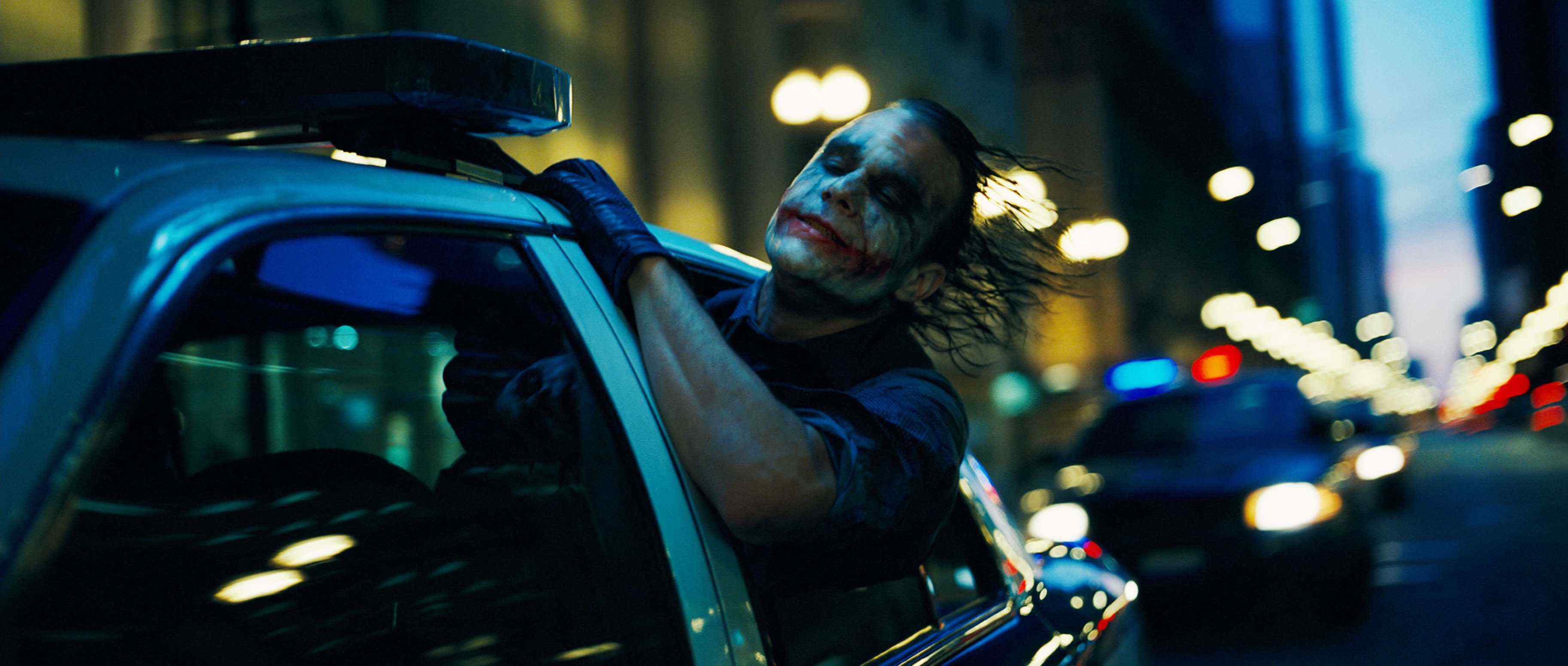 From a Not Quite Horror perspective, the idea that Gotham is an inherently dangerous place to live, that no matter how hard you try to be a good person, you’ll ultimately fail because its very streets are awash with blood and corruption, is particularly strong. Nolan establishes this right from the outset by giving us that first, fleeting glimpse at The Joker instead of the familiarity of Batman.
From a Not Quite Horror perspective, the idea that Gotham is an inherently dangerous place to live, that no matter how hard you try to be a good person, you’ll ultimately fail because its very streets are awash with blood and corruption, is particularly strong. Nolan establishes this right from the outset by giving us that first, fleeting glimpse at The Joker instead of the familiarity of Batman.
Ledger’s performance is pure horror movie villain, right down to the smudged make-up he reportedly dreamed up himself. From his pencil “trick” to his speeches about how he got his scars, or why he uses knives instead of guns, The Joker is never anything less than a terrifying, unpredictable force to be reckoned with–an agent of chaos, as both he and Alfred note on separate occasions.
Although The Dark Knight is a very unsettling movie, darker than perhaps any others of its ilk, the violence is mostly implied, with the IMDb noting that there is hardly a drop of blood shed over its two hour plus running time. However, it’s this suggestion that makes the film so disconcerting. Take, for example, when The Joker is taunting a Batman wannabe–in a bone-chilling video that is so out of left field it’s like it’s been telegraphed from a horror movie – or when he decides to hold so-called tryouts to join his team.
Torture and, consequently, death are heavily implied, but we don’t actually see much of anything. In fact, even when the Joker slits a man’s throat, Nolan cuts to a reaction shot of one of his cronies to drive the point home. This is a clever way to showcase the villain’s thoughtless approach to killing people, without feeling the need to have him endlessly explain his motivations, or to show a pile of dead bodies (though the one dead body that does feature also accounts for the best jump scare in the movie).
The Dark Knight‘s message is that everybody is corruptible, nobody is immune from turning into the villain. We watch Dent, Gotham’s White Knight, torture an innocent man for information before later subjecting Jim Gordon’s family to a similar bout of turmoil, in the misguided belief it will make him feel better about losing his own family. By turning Dent so against his own beliefs, Nolan makes the point that nobody in Gotham is safe from the evil that seeps through it.
 Likewise, although Batman never breaks his one rule, he does beat the living hell out of The Joker (supposedly for real, according to set reports) and throws a smug mob boss off a balcony, breaking his legs. The sense of impending doom present throughout The Dark Knight is palpable. This is especially true when you consider that the central conceit concerns The Joker’s inscrutable desire to be killed by Batman, to taint the purest dark force in Gotham.
Likewise, although Batman never breaks his one rule, he does beat the living hell out of The Joker (supposedly for real, according to set reports) and throws a smug mob boss off a balcony, breaking his legs. The sense of impending doom present throughout The Dark Knight is palpable. This is especially true when you consider that the central conceit concerns The Joker’s inscrutable desire to be killed by Batman, to taint the purest dark force in Gotham.
The real horror, however, is in the corruption of Dent. When it comes to VFX in modern blockbusters, you’d be hard pressed to find anything as convincing, or horrifying, than those used to create Eckhart’s disgusting Two Face. For a film that’s almost entirely devoid of blood, this particular effect is stomach-churning. It’s not the only instance of implied gore, though, with the aforementioned pencil trick and the memorable, Saw-like bomb in a stomach bit particular standouts.
The film works primarily because The Joker is a constant, very serious threat, popping up every now and again to remind us as such. Even when he appears for the last time, he’s there to remind Batman that he’s ruined everything and that the city’s dark knight is going to have to take the fall for its white knight, or risk losing everything for which they’ve worked so hard. Batman’s refusal to kill The Joker is directly juxtaposed against his relentless, easy attitude to killing. It’s his final stand against the evil of Gotham, his final sacrifice for the city he loves.
The Dark Knight is one of the only modern superhero/comic book tales that’s in any way frightening, or even chilling. The Avengers tried, and failed, with Ultron who, although well-serviced by James Spader, failed to make an impact as nuts-and-bolts compared to the flesh-and-blood Joker. This is definitely Ledger’s film, but Christian Bale does a great job as the tortured Batman, while Eckhart is terrific as the destroyed white knight and Gary Oldman provides ample support as Jim Gordon, a man doing the best he can in the harshest of circumstances.
Nearly ten years later, no comparable blockbuster has even come close to matching the darkness of The Dark Knight. And it’s doubtful any movie of this type ever will.

